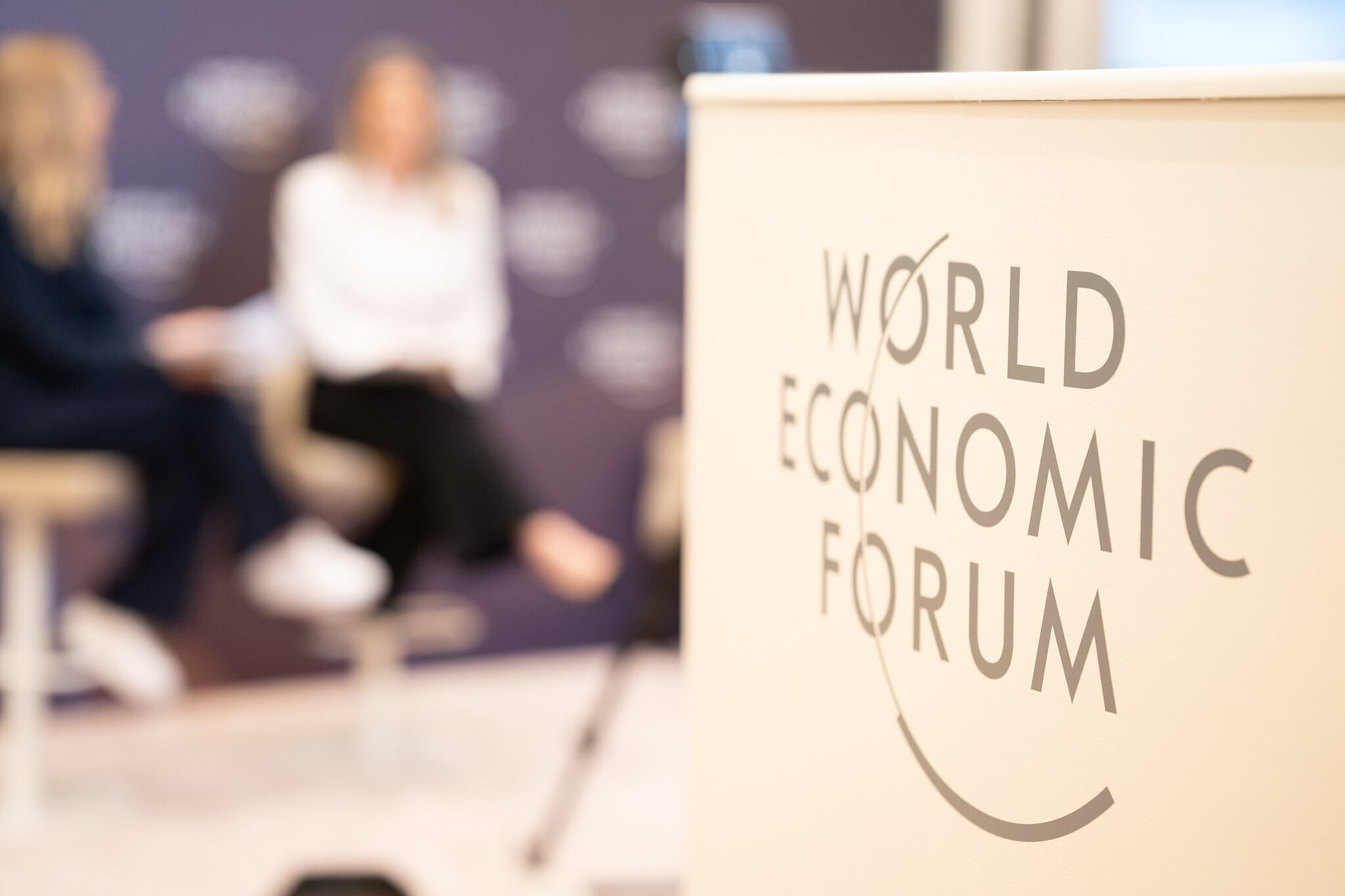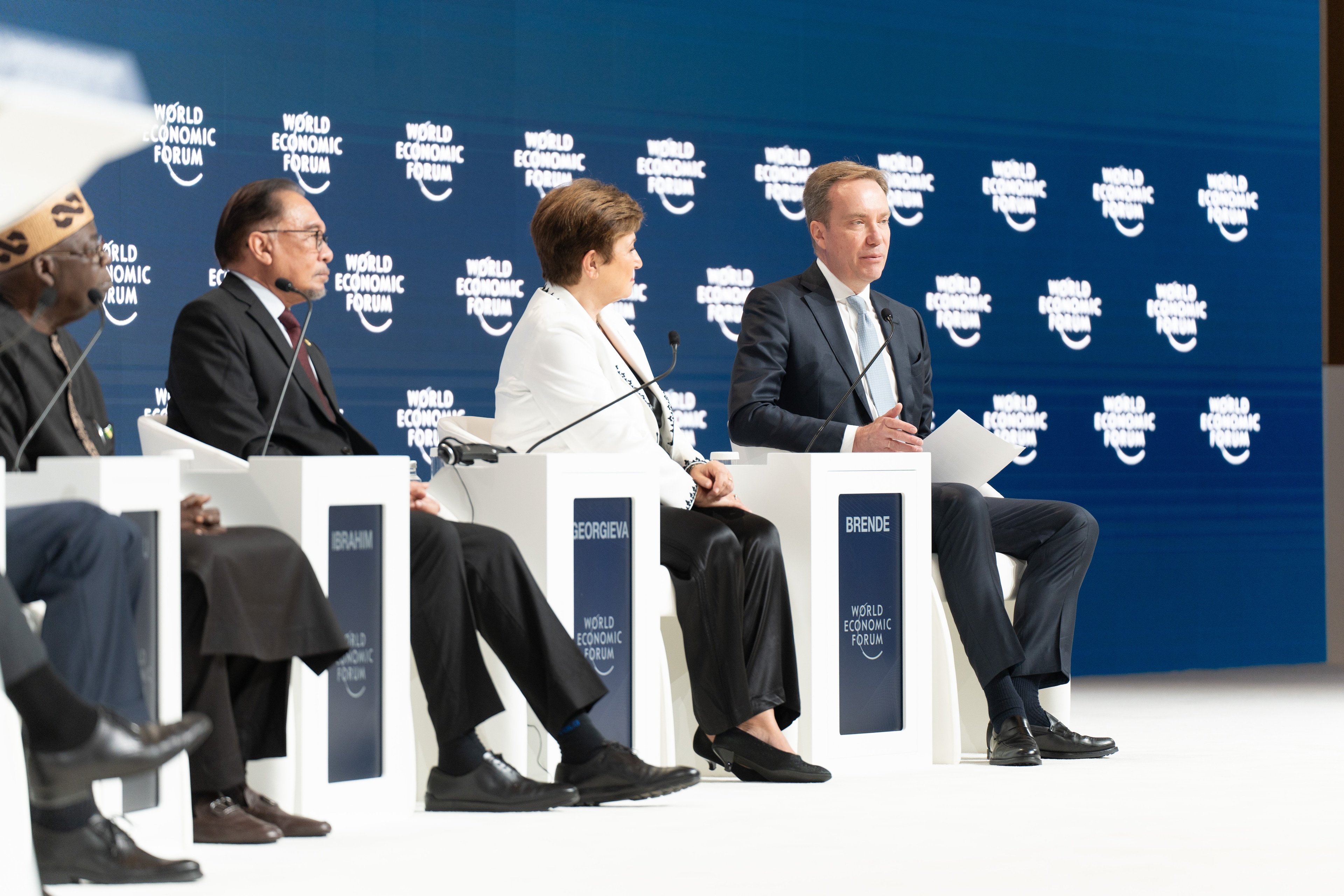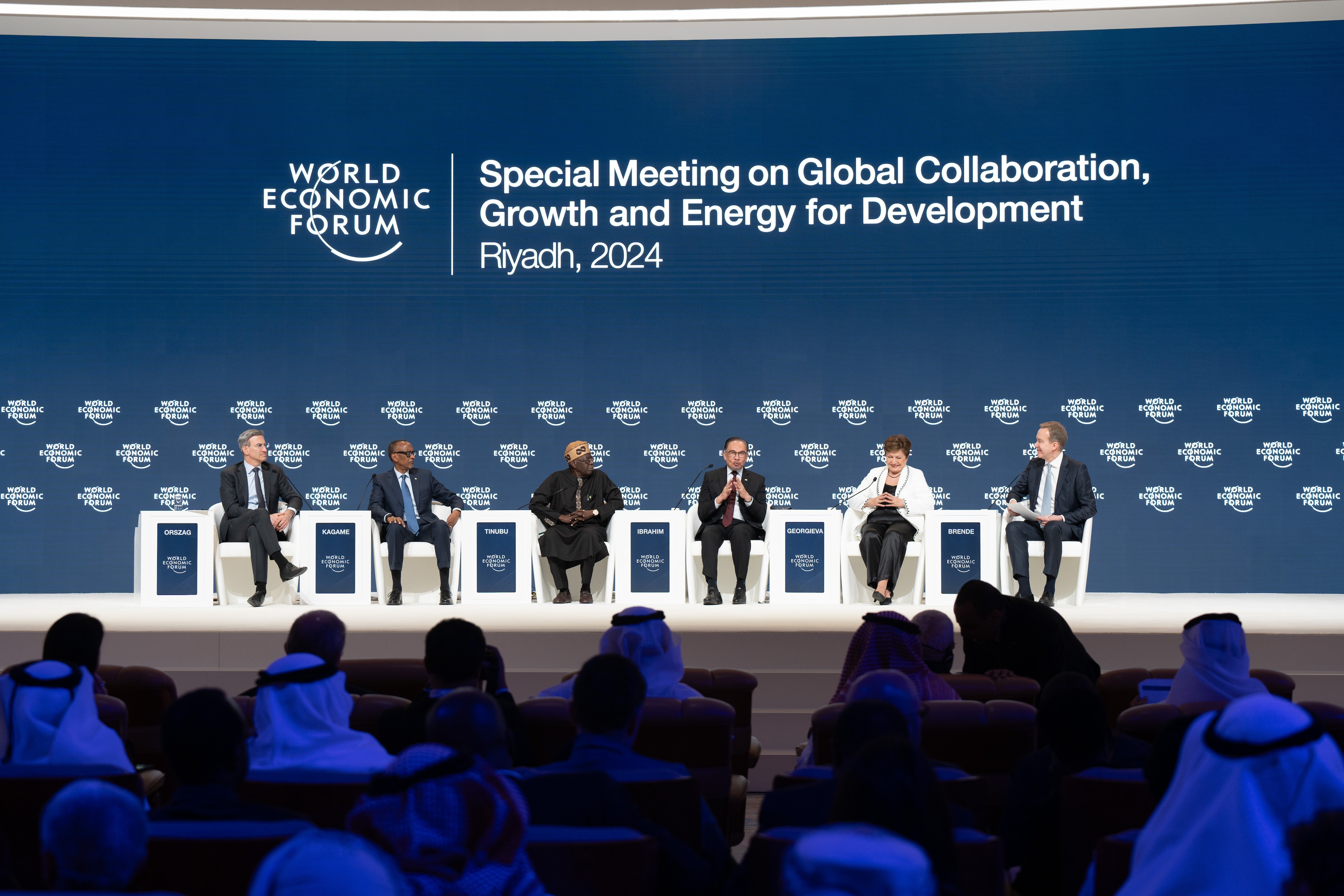From AI for better jobs to gender parity, 5 key takeaways from SDIM23

The World Economic Forum held the Sustainable Development Impact Meetings 2023 (SDIM23) in New York from 18-22 September. Image: Unsplash/Hannah Busing

Get involved with our crowdsourced digital platform to deliver impact at scale
Stay up to date:
Davos Agenda
Listen to the article
- The World Economic Forum held the Sustainable Development Impact Meetings 2023 (SDIM23) in New York from 18-22 September.
- More than 1,000 leaders came together to accelerate momentum towards achieving the UN's 17 Sustainable Development Goals.
- From improving food systems to boosting food security and harnessing AI for better jobs, here are some of the key takeaways from SDIM23.
“The SDGs aren’t just a list of goals. They carry the hopes, dreams, rights and expectations of people everywhere,” UN Secretary-General António Guterres told world leaders gathered in New York for the UN General Assembly on 18 September.
At the same time – and at the midway point to the 2030 Agenda – the World Economic Forum gathered more than 1,000 leaders across politics, business and civil society to speed up progress towards achieving the SDGs at the Sustainable Development Impact Meetings (SDIM23).
Guterres identified six areas where urgent action is needed: hunger, renewable energy, digitalization, education, decent work and social protection and the "war on nature".
Throughout more than 60 sessions and workshops during SDIM23, panellists spoke with passion about how to keep the goals alive – with innovation and investment being central to those efforts.
Here are some key quotes from the sessions, as well as a snapshot of the 25 initiatives announced over the week.
Supporting Africa to greater food security
At the leadership panel Bridging the Gap: Financing Africa's Agricultural Growth, Kenya's President William Samoei Ruto said the hunger facing people in Africa constituted a "humanitarian crisis".
In her speech, US Secretary of the Treasury Janet L. Yellen listed the multiple impacts of food insecurity: "Food security matters both morally, and for the global economy."
Africa's small and medium agricultural enterprises (agri-SMEs) are the key to transforming food systems and improving food security for the continent, but three-quarters of them can’t access formal bank financing, and are too large for microfinance.
The United States Agency for International Development and the government of Norway launched a new multi-donor fund designed to unlock hundreds of millions in financing for agri-SMEs.
The Financing for Agricultural Small-and-Medium Enterprises in Africa fund has the potential to support 500 agri-SMEs and 1.5 million smallholder farmers, benefitting almost 7.5 million people and supporting around 60,000 private-sector jobs.
Jacqueline Novogratz, Founder and Chief Executive Officer of not-for-profit Acumen, said "entrepreneurs are the solution".
The power of digital transformation
The Forum's latest Chief Economists Outlook, launched during SDIM23, finds that 60% of economists expect the global economy to weaken in the coming year.
But the majority – 97% – of the economists surveyed said private capital could drive emerging technology such as AI to help accelerate growth and solve global challenges, provided the risks are managed.
The EDISON Alliance, a global initiative launched by the Forum to advance digital inclusion and accessibility, crossed the halfway mark in its aim to positively impact 1 billion lives through digital inclusion and added Honduras, Togo and the United Arab Emirates as partners in its Lighthouse Countries Network.
The Forum's latest Jobs of Tomorrow white paper looks at the potential of AI, and large language models in particular, to automate tasks within more than 800 job roles.
Speaking at the Automation and Augmentation: The AI Workforce session, Paula Ingabire, Minister of Information Communication Technology and Innovation of Rwanda, said she is "optimistic" about the "ability to democratize access to opportunities" through technology.
PwC Global Chairman Robert E. Moritz said it's crucial to get buy-in and create the right conditions and culture for people to experiment with technology: “If you give people permission to use the technologies, and give them the tools to do so, and the safe environment to learn and fail fast, that’s the recipe for all the upside."
Empowering women to boost growth
SDG5 sets out the need to "achieve gender equality and empower all women and girls". The Forum's Global Gender Gap Report 2023 found it will take an estimated 131 years to reach full parity at the current trajectory.
During SDIM23, a multi-stakeholder group of leaders came together to work on developing the Gender Parity Sprint to reduce time to parity and speed up progress towards SDG5.
In a passionate session on Accelerating Progress on Gender Parity, the CEO of the Rwanda Development Board, Clare Akamanzi, explained that 61% of the country's MPs are women because the leadership is "deliberate" about gender inclusivity and it monitors progress.
Meanwhile, the President of the African Development Bank Group, Akinwumi Ayodeji Adesina, said "women run Africa" and the bank is mobilizing funds to support women in agriculture.
Decarbonizing through innovation
The so-called hard-to-abate sectors, like shipping, cement and chemicals, account for around 30% of the world's CO2 emissions.
During a session hosted by UpLink on Innovation for Tough-to-Decarbonize Industries, Annie Hills, Senior Adviser on Innovation to the Special Presidential Envoy for Climate, said: “These industries can’t use the levers that we normally think about when we’re talking about decarbonization.” She pointed out that "what we need to see is innovation”.
Representing the mining industry, Benedikt Sobotka, Chief Executive Officer of Eurasian Resources Group Sàrl, said the green energy transition is the "biggest purchase order" in the history of mining demand. This is because demand for materials is set to double by 2040.
The industry is very short of talent, and expanding the supply chain would be an "incredible challenge", but it's also an "incredible opportunity for innovation".
The Forum's First Movers Coalition, a group of companies using their purchasing power to create early markets for clean technologies, has reached 111 commitments to advance near-zero-emission products, across seven hard-to-abate sectors, amounting to $15 billion.
The initiative has also announced two new efforts to advance net-zero goals: the UpLink Sustainable Aviation Challenge and the Near-Zero Steel Challenge.
Taking action on climate and protecting nature
Global health experts joined a session on Exploring the Climate and Health Nexus to discuss how countries should adapt to better address the implications of climate change on the wellbeing of their citizens.
“We have to stop thinking about these problems as impossible,” said Vanessa Kerry, Co-Founder and Chief Executive Officer, Seed Global Health.
“We have to recognize the timelines are long but the urgency to make the right decisions is now. And then we have to realize there is absolutely no such thing as too ambitious for the moment we are in today.”
In a session on the fourth and final day of SDIM23, From Aid Dependency to Sustainable Investments in Frontier Markets, reminded the panel that if we can put humans on the moon, anything is possible.
Queen Rania Al Abdullah of Jordan joined the Giving to Amplify Earth Action as the initiative’s first global co-chair to inspire a new generation of public-private-philanthropic partnerships.
Among other initiatives, UpLink announced the winning solutions from recent nature-focused Innovation Challenges and launched the Trillion Trees Challenge on forest restoration.
A new Forum report, meanwhile, showed how protecting and restoring nature in 12 sectors, including the built environment, chemicals, construction materials, fashion and apparel, and travel and tourism, could generate $10.1 trillion in business opportunity by 2030.
Don't miss any update on this topic
Create a free account and access your personalized content collection with our latest publications and analyses.
License and Republishing
World Economic Forum articles may be republished in accordance with the Creative Commons Attribution-NonCommercial-NoDerivatives 4.0 International Public License, and in accordance with our Terms of Use.
The views expressed in this article are those of the author alone and not the World Economic Forum.
Related topics:
The Agenda Weekly
A weekly update of the most important issues driving the global agenda
You can unsubscribe at any time using the link in our emails. For more details, review our privacy policy.
More on Forum InstitutionalSee all
Maroun Kairouz
May 3, 2024
Gayle Markovitz
April 28, 2024
Gayle Markovitz
April 27, 2024
Mirek Dušek and Maroun Kairouz
April 27, 2024
Kate Whiting
April 26, 2024
Spencer Feingold and Gayle Markovitz
April 19, 2024






